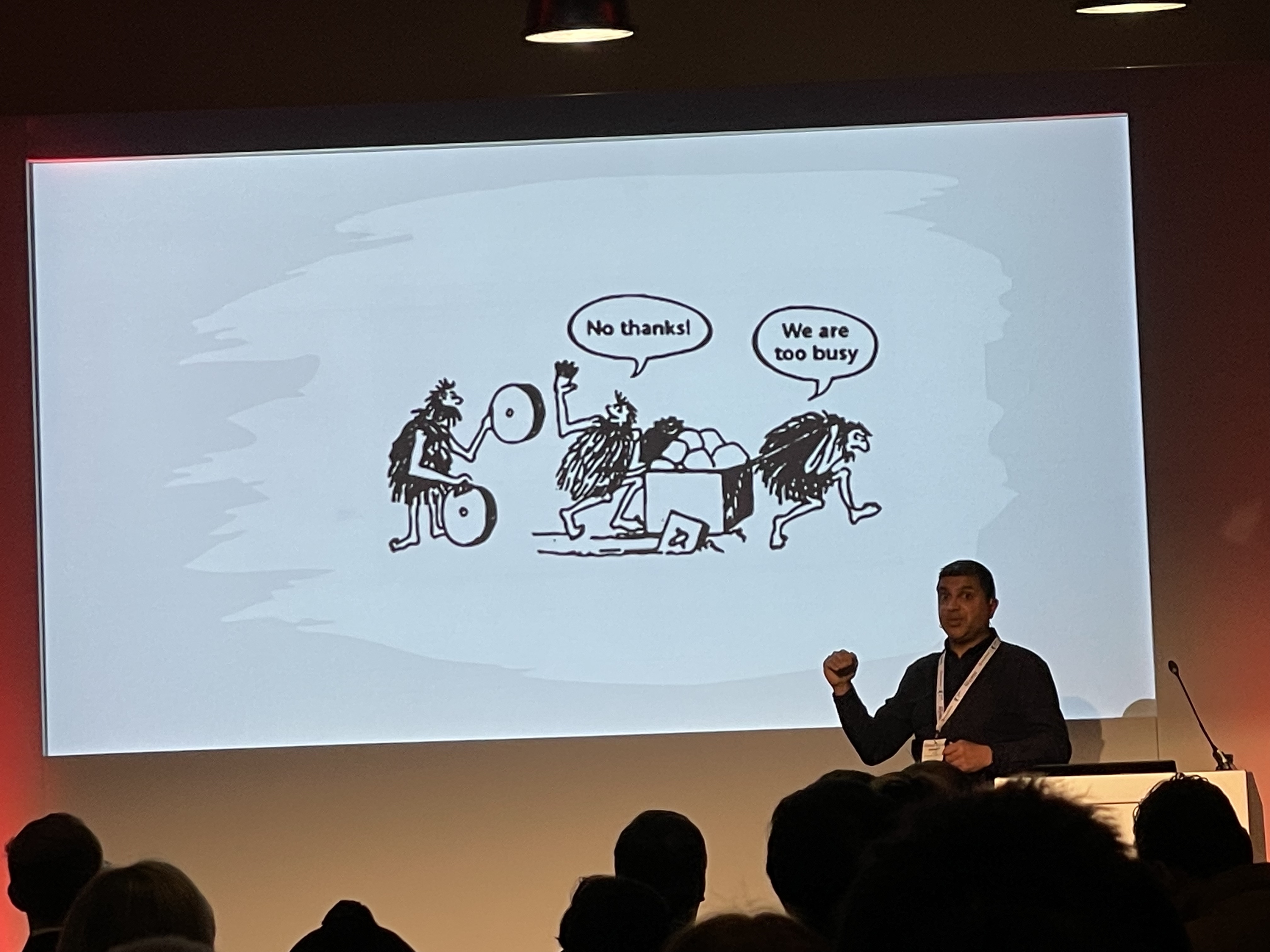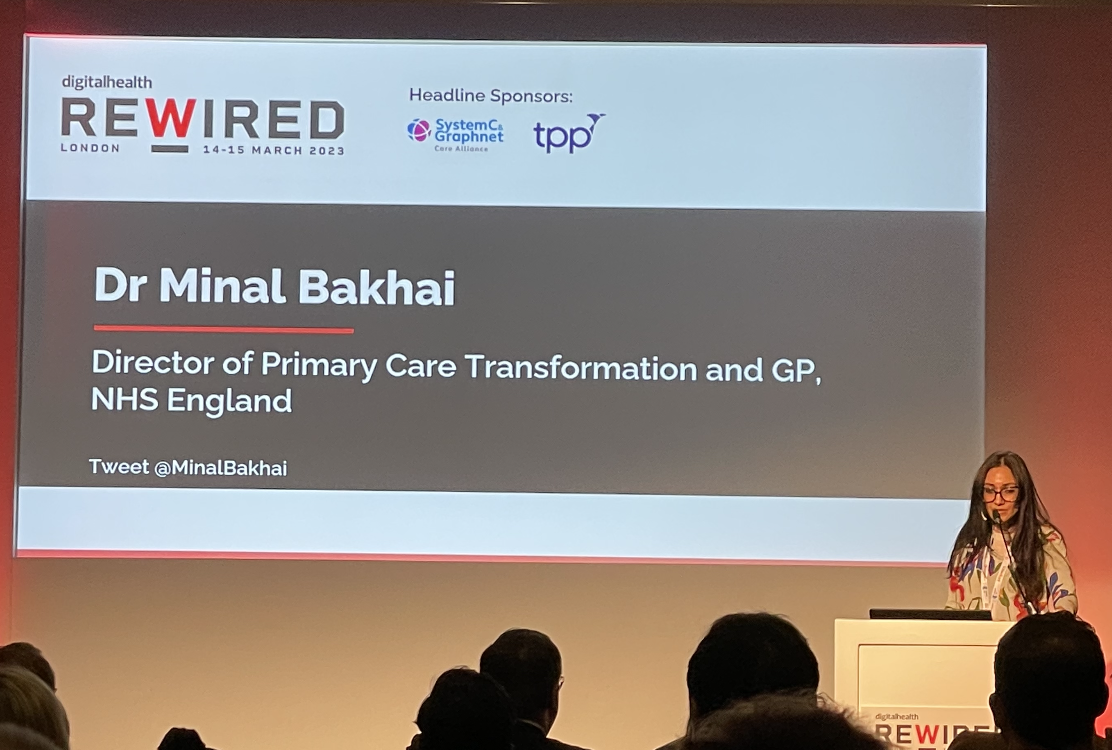Blog Post No time to waste - Digital Health Rewired 2023

We attended The 2023 Digital Health Rewired Conference on the 15th March 2023. The event brought together healthcare professionals, policymakers, NHS IT leaders, suppliers, start ups and those who want to contribute to the successful digital transformation of the UK health and social care sector.
We had an amazing and inspiring day hearing from experts in the field. Here are some of our main takeaways:
The NHS is already facing a tough recovery from the Covid-19 pandemic. To make things more complicated, the UK health service is dealing with an ageing population, lack of funds, and staff shortages. To meet these increased challenges, the NHS needs to accelerate its digital transformation strategy.
During his opening keynote session, Dr. Tim Ferris, National Director of Transformation at NHS England, highlighted that the health service should not fear the risks of technological innovation. The risks associated with change remain the “elephant in the room” when it comes to the digital transformation of the health service. However, we must remember that the risk of not changing is even more significant. As the recent years have demonstrated, the future of healthcare lies in digital innovation, and we need to embrace this reality.
 To achieve successful digital transformation, collaboration and communication are key. Healthcare professionals, patients, and technology providers need to work together to create innovative solutions that meet the needs of everyone involved.
To achieve successful digital transformation, collaboration and communication are key. Healthcare professionals, patients, and technology providers need to work together to create innovative solutions that meet the needs of everyone involved.
Functionality & collaboration are key for digitalisation
Rhidian Gallagher , CCIO, Wales & Medical Director, Digital Health and Care Wales, noted infrastructure investment is key for digital change.
However, when talking of digital transformation it is important to ask: “What is the functionality we are trying to deliver? Value-based approach is necessary to know what to digitalise. Design yourself rather than buy off the shelf.” For instance, as pointed out the e-nursing NHS Welsh Care Records was developed with input from the nursing staff, which helped to turn it into a successful digital tool.
App Rail’s offers agile and easy to adopt, digital technology solutions for those NHS trusts who want to make change. By using its drag-and-drop tools and other features, users can quickly build an interactive user interface that they can adapt to the functionality they want to achieve.
Digital Tools: enabling GP service delivery
GPs are experiencing a significant increase in demands, with a 15% rise in workload in recent times, according to Dr. Minal Bakhai, Director of Primary Care Transformation and GP, NHS England. However, workload and workforce distribution remain unequal, bringing a new era of 'General Practice' model, where patients increasingly use digital access routes to manage their health. This has made GP websites, apps, and other digital tools critical enablers of effective general practice service delivery.

Dr. Oshman Bhatti, GP and CCIO, noted that GP practices are under immense pressure to change, yet often there is a feeling of "no time to change." Integrated and collaborative transformation is needed to carry out sustainable change. Digitalisation goals can only be achieved, if the adoption of new practices are cooperative and take user testing and user journeys into account.
Digital access tools and no-code platforms are essential enablers of general practice service delivery. They can make healthcare more effective and efficient, especially in the face of growing demand and limited resources. No-code platforms such as App Rail enables GP practices to create apps without a specialised set of skills to support their workflow and workload, thus making patient care more effective.
Finally, the NHS needs to accelerate its digital transformation strategy to meet the challenges it faces today and in the future. It is time to work together to make digital transformation goals a reality across the UK.